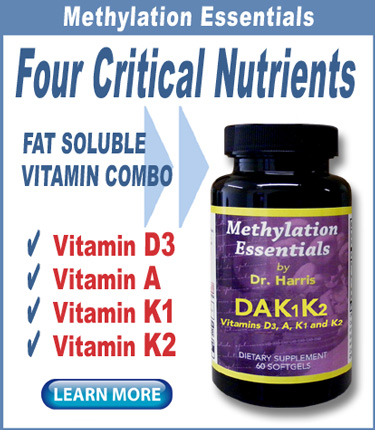The effectiveness of Vitamin D in battling COVID-19 is being reinforced by new research from around the world almost weekly.
Sadly, though, this information is not reaching the masses.
Due to a virtual blackout by mainstream media, the average person will only become aware of the extensive evidence if they are exposed to research databases.
(See the article list in the sidebar of this post for Vitamin D studies we have covered previously. Links and dates are provided.)
“Vitamin” D is actually a hormone. It controls blood calcium concentration, and—based on decades of previous research—is known to have a dramatic impact on immune system response.
Deficiency in Vitamin D is one of the most common nutritional deficiencies. Deficiency is particularly high in western countries, with the U.S. near the top. Severe deficiency has been linked to a variety of health issues; however, new research has only recently shed light on the fact that even minor deficiencies can dramatically handicap the immune system.
Earlier Vitamin D / COVID-19 Studies
–
Former CDC chief affirms Vitamin D reduces COVID-19 risk (April 2020)
Low Vitamin D levels increase COVID-19 death rates, according to new U.S. study (May, 2020)
Vitamin D, B12 and magnesium reduce COVID-19 severity in Singaporean study (July 2020)
Low Vitamin D raises risk of COVID-19, according to University of Chicago study (Sept 2020)
Vitamin D deficiency linked to 54% higher COVID rate in Boston University study (Oct 2020)
French study finds elderly patients taking Vitamin D supplements more likely to survive COVID-19 (Nov 2020)
COVID patients have high Vitamin D deficiency
Now a new study from Spain has shown that over 80% of COVID-19 patients in the hospital had a deficiency in Vitamin D. By comparison, the rate of deficiency in Spain’s general population is 47%.
This wide variation dramatically illustrates that a person with Vitamin D deficiency runs a much greater risk of being hospitalized for COVID-19.
The study was published online in the Endocrine Society’s Journal of Endocrinology and Metabolism in October.
According to the study, 80% of the 216 COVID-19 patients at the Hospital Universitario Marqués de Valdecilla had Vitamin D deficiency. The authors of the study linked low Vitamin D levels to increased serum levels of inflammatory biomarkers, such as ferritin and D-dimer.
Additionally, those with serum levels of Vitamin D less than or equal to 20 ng/mL—the level considered deficient—had longer hospital stays, and a greater prevalence of hypertension and cardiovascular diseases.
An observational study–one of many
Because this was an observational study, no causative relationship between Vitamin D levels and COVID-19 outcomes could be established by the authors. However, since numerous “observational only” studies from across the globe have come to the same conclusion, even the early detractors are now concluding that maintaining optimal Vitamin D levels is, indeed, an important component in fighting COVID-19.
“One approach is to identify and treat Vitamin D deficiency, especially in high-risk individuals such as the elderly, patients with comorbidities, and nursing home residents, who are the main target population for COVID-19,” study co-author José L. Hernandéz said in the announcement of the publication.
“Vitamin D treatment should be recommended in COVID-19 patients with low levels of Vitamin D circulating in the blood since this approach might have beneficial effects in both the musculoskeletal and the immune system.”
Vitamin D3 can be found in the following Optimal Health Systems products:
• Optimal Longevi-D
• Essential DAK1K2
• Daily Nutrient Essential Pak
• Opti-Immune-VRL
– – –
Sources: The Journal of Clinical Endocrinology & Metabolism (Oxford Academic), Nutraceuticals World.


